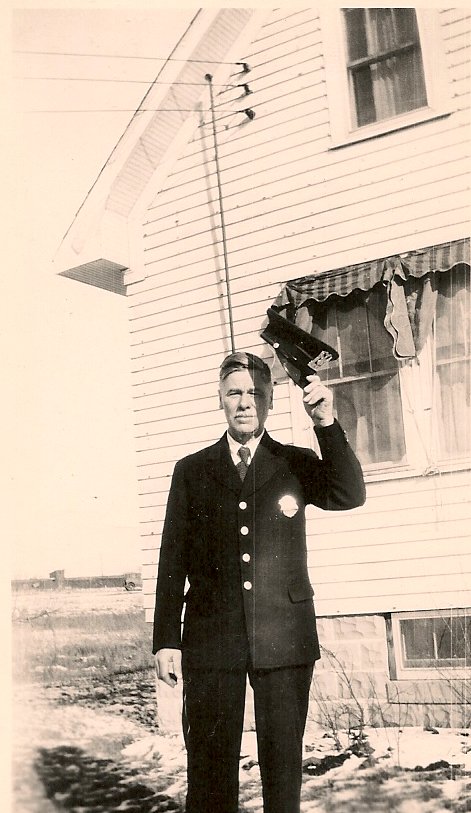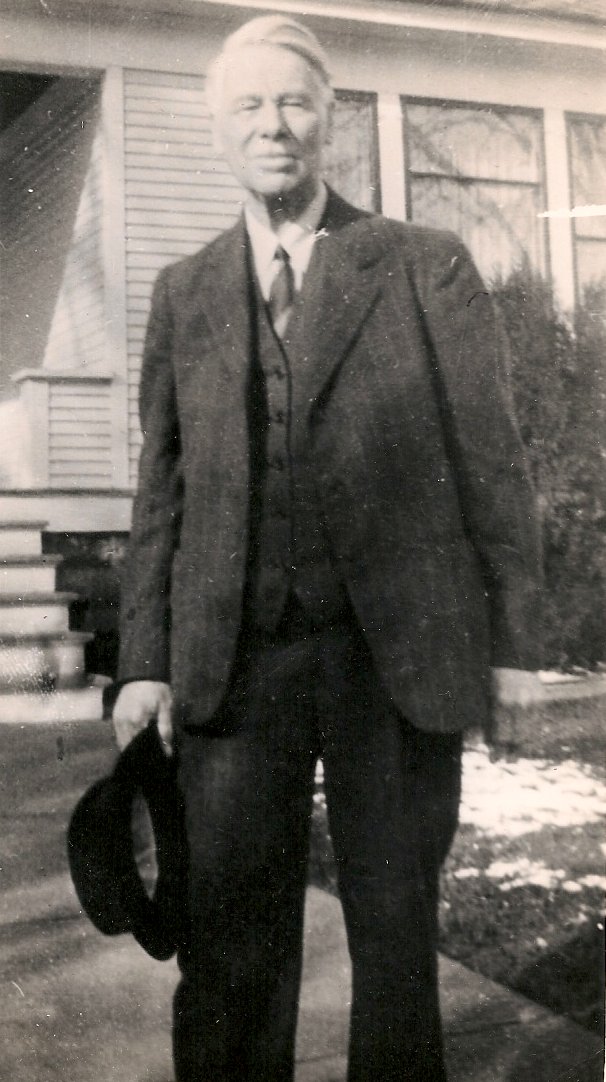How Alfred Traugott Thoms became Fred Prinzing: the story of my maternal great great grandfather
/Finding information on my paternal side about Hannah (and pretty much everyone else) has been difficult. Either photos and letters were lost, or they never existed at all. I write more about this side because I knew them best; I spent long weeks and holidays and spent lots of time with them. However, I didn't know my mother's side well, mainly because of geographical distance (we lived in Pennsylvania while most of them resided on the West Coast.) But it's time to share some stories from them. And while the Stafford side lacks information, my maternal Buerer side has a wealth of it--they documented almost every single sneeze.
Born in Mecklenburg-Schwerin, Germany (a territory on the northern part of the country) in 1839, Frederich Traugott Jacob Thoms arrived in New York in August of 1855. He later married Maria Ida Riesen (born in Prussia, now Poland) and later became a minister in Neustadt, Ontario, Canada, after graduating from German Baptist Seminary in Rochester, NY. He had previously led several other churches before settling in Ontario, one being the Bethel Baptist Church in Detroit, MI, and another Baptist church in Illinois.
Frederich and Ida had three sons: William Julius, Robert Hilmar, Alfred Traugott (b. April 17, 1869), with another child on the way in March 1871. One Sunday in March, Frederich rose to the pulpit to deliver his message and announced that although he had prepared a talk on a different topic, he felt the need to preach funeral sermon for someone in the congregation. By the end of his speech, Frederich admitted to his parishioners it was his own funeral he was speaking of. Within the week, Frederich became very ill and asked to speak to his three boys by his bedside to bless them. Frederich died on March 22, 1871, leaving his pregnant wife with three young boys.
Ida gave birth to Emil George on December 16, 1871, and now had four boys to look after on her own. A typhoid epidemic broke out in the area, and Ida contracted the disease while caring for others in need. She passed on June 2, 1873, leaving her sons orphans.
Alfred Traugott Thoms aka Fred Prinzing, probably around the time of his adoption.
Soon after, the four boys were sent to Chicago to live with Ida's parents, Johann and Justina Riesen. Apparently the Riesen's were extremely poor and had many other children to look after. Food was scarce, and the milk for the family went to their biological children while the four Thoms boys drank coffee. The Sunday after the boys arrived, they were placed on the platform of the First German Baptist Church of Chicago for possible adoption. No one responded. The Thoms boys returned to their grandparents.
However, little girl named Rose Prizing sat in the congregation and felt sympathy for the boys. She begged her mother for a brother, and even though her mother replied no for a time, Mr. and Mrs. Prinzing returned and took Alfred, probably around four years old, into their home, later adopting him and giving him the name Fred Prinzing. As for the other boys, William went to live with an uncle, and Robert went to live with a family called the Janssens to work on their farm. Emil remained, as he was a sickly child (probably with polio) and either couldn't walk or didn't walk well. Eventually, Emil went to live until he was 21 with a German pastor named Rev. Carol Ohlgart and his family.
As Fred grew older, he expressed an interest in farming, and later founded the Congo Gospel Mission of Villa Park, IL, and served for 22 years as its Secretary and Treasurer. He married Emma Haunschild on March 1, 1892, and had four sons and six daughters.
Fred Prinzing and his wife, Emma Haunschild.
My mother remembers him as a very elegant and kind man who was well read and enjoyed talking to his grandchildren. On January 28, 1951, Fred passed away after a brief illness while visiting his daughter in Crawfordsville, IN.
Information obtained from writings and stories from my grandmother, Victoria Emma Prinzing Buerer and H.F. Shermer.





